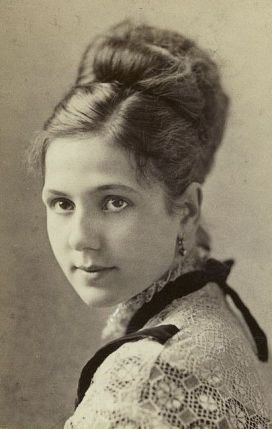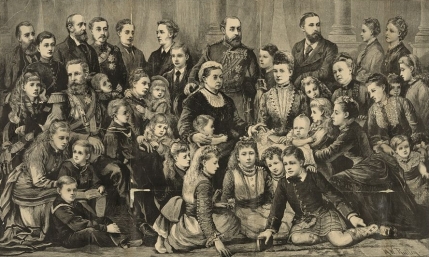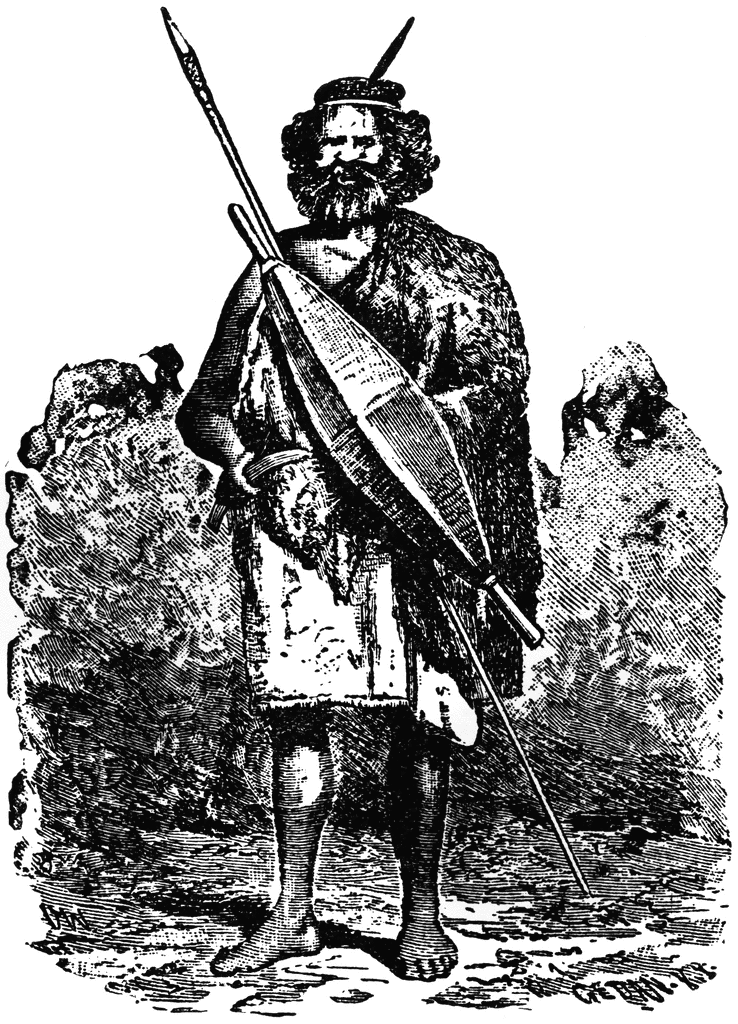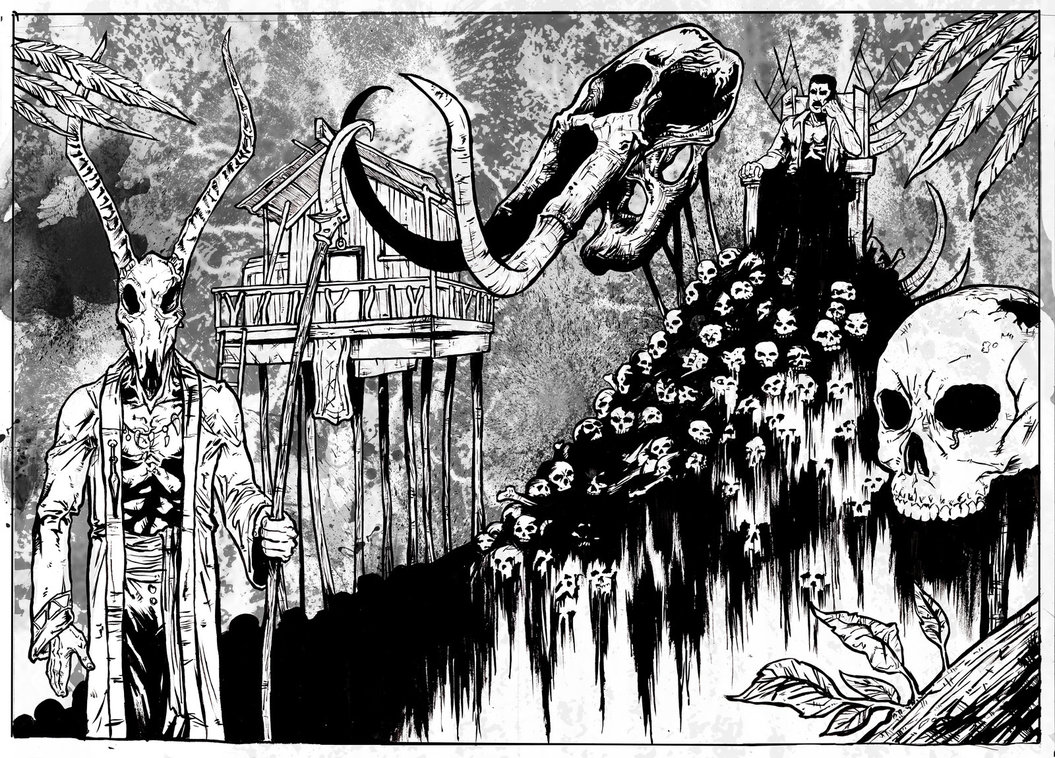Mile End, Emotions & Morals (Prima Parte)
One cannot help but to feel oneself spiritually elevated, elevated! By the Boticelli and Titian works that hang upon these walls, though of course, this being Mile End, the works are mere fraudulent copies; bequeathed to the Artistic Museum by the Bow Street Detective force in one instance (The Venus) most regretfully!
But, let us not dwell on that but rather let us note, dear reader, the most prestigious Curate of the Mile End Artistic Museum, as he most surreptitiously guides his elegant guests betwixt the many rich and lyrical works that grace the walls of this ninth wonder of the British Empire.
“Little is known of Domenico Venziano the master of Francisco De La Pella, but what little remains of his work has a most lyrical beauty as you may see here. Note, the carefree yet harmonious study of design, the manner in which he depicts the naked Judas Iscariot, an image not of ignominious shame as in the mediaeval mind, but of elegance, of grace” and having so noted, his guests, the infamous Baron Montaperti, Lord Orlando Ottoline and his muse, the stage actress Mrs Madeline Drang, move on.
“I am told that the best art is always true to the great, glad, aboriginal instincts of our nature. Never representing disease in the guise of health, many sided without being unbalanced, and forcible! Yes forcible! Without ever losing the fine sense of proportion!”
Lord Orlando Ottoline is quite in agreement,
“Yes, quite exquisite and most extraordinary!”
“The painting?”
“The sum paid for it. I am told Mr Disraeli paid some five hundred British Pounds?”
“Five hundred sterling and hundred shillings and fifty pence, is the correct sum, I should know having brokered the deal”
“Why?”
“The good lord knows, though one must confess it hangs as handsomely within Mile End Art Gallery, as the brigands do without! Haw haw haw!”
Baron (lately Lord) Montaperti is most taken with his own sense of humour though his companions are at a loss as to why they have been invited to peruse copies of paintings hung in some East End haunt, when they might be perusing the latest painting by Edward Lear at the Royal Academy of Art.
“Though it may be said that the dead soil of art grows ever richer with the addition of new works, it is to be observed that there can be no improvement on the ancient works we have hung here, and that (copies though they are), they are a worthy and most enlightening addition to the culture of Mile End”
Wonder at the elegance of the curate of the Artistic Museum, his dignified presence and the cut of his jib, as glossy as that of a new bought gelding. What shapely legs! What an elegant figure! What costly attire and all of it most graciously provided by the Society for the Suppression of Mendacity!

Mile End’s Depths! Christoffer Harlow’s London! (Seconda Parte)
Trees that live long grow slowly, and like a mighty Oak, that highly prized jewel of many an English Forest, London has been fought over again and again; indeed she has been so brutally captured & so thoroughly ravaged that t’is a wonder she is able to arise time & again untainted & unpolluted by the dank & dismal deeds of her direst (and most sinistrous) conquerors. To such infusoria (the historically deranged & the lunatick) history pays little heed, and so the earliest rulers of London have passed away like the beasts they fought and slew, and their very names and heinous legacies have passed on with them.
Save one such legacy (most sinister & also sinistrous) well hidden some six feet beneath a graveyard in Mile End. Very likely it is hidden even deeper than that, for it is a fragment of a much earlier London, a muddied and fossilized place resonant of a vicious savagery born of frenzied spiritual ardour.In that place lie tombs, keys, weapons and roughly hewn statues of he whose most glorious essence (one dare not utter his name!) lingers still over our England (though his most ardent followers have lately fallen into scandal).
Mile End is a place of little import famed only as the home of Reverend Unctuous, he who having lately fallen from grace, abides infrequently at the chaplaincy of St Mary Produndis. St Mary Profundis, whose graveyard is now the burial place of one Master Hemphill-Skinner; he whose most unfortunate end at the hands (some say) of The Right Honourable Ethelbert-Smythe (lately committed to Bethel Asylum), has since passed into the lore of the Bow Street Detective Force.
But I digress, dear reader, for Mile End’s depths harbour a secret of much portentous and direst import. A secret (post-pagan and Pre-Christian) buried so long and only lately resurrected beneath that vast ocean that is London, that one must bear in mind the words of that infamous playwright Christoffer Harlow ‘the refined gent is struck with Mile-End as comprehending all that is most intriguing about London life at it’s most exhaustively principled, and inexhaustibly depraved’.
I could scarce disagree, for Mile End’s inhabitants are so multifarious that to touch upon the accomplishments of the good and the great, is to inadvertently lean upon the heinous doings of that other sort. Those whom we deign to refer to as the bludgers & buttock twangers, the sneak thieves and coves of the British Empire’s great proletariat, race.
To be continued…….

Francis Page
Alas! The Iniquity of Mammon! (Parte Terza)
How desolate & cold the Mile End Graveyard is, above stairs & below stars where cold stone tablets commemorate the abode of the dead! Yet it is colder & still more desolate below ground, there, where, a secret monastery (centuries old) nests, & hellish intrigues newly bred, abound, simmer & brood. A phantasmagoria of shadow-studies flickers against the algae covered walls of that ancient, pungent & putrid abode, of secretive worship. Half worn candles trickle tallow till the grimy sconces in which they have been placed brim over with wax, whilst the secretive, cowled gathering sits in disapproving counsel. For they have, one and all, sanctified themselves to the advancement & exalting of the essence of Gove, but there is one standing in the midst of them who has fallen beside the way.
“Is it to be wondered at that I covet money? I am beset by misfortune ! By the head of Gove I am maimed, crippled, by usury! The debts I carry (out of sheer necessity I own) are a monstrous thing! I stand tormented by creditors!”
“Many of whom you beleaguer with threats of physical assault? Yes brother, so we have heard”
“Tell me brothers is there nothing you can do? I must needs have funds, there is a necessity for me to have moneys!”
“From what place soever, and from whomsoever brother?! Would you have the brotherhood pile infamy on top of infamy now that, the other scandal has scarce abated? Why, Master Ethelbert-Smythe has scarce been confined a year in Bethlem Asylum & we must needs find a means of silencing that embarrassment! Would you add to our woes still further, brother?”
Lord Elderberry’s face is flush with anger but he suppresses it, his uncle has been peremptorily returned by the brotherhood to a French mental asylum (St Bacchanalia’s Asylum having been torched to the ground) & his aunt has been reinstated as the rightful heir of the estate. As a consequence his position financial is most precarious & he must needs throw himself at the feet of those who, though they despise him, still have most extensive need of his services.
“Brother I stand before you now sanctified as to the essence of Gove, for is it not in his name that I have denied myself & embraced that reckless devotion to self-ennoblement some deign to call politics? It it not as a consequence of this that I now stand here before you, teetering on the brink of ruin? I tell you I must have money!”
With chubby hands clasped gently a’fore his cassock Father Domitius glares calmly at the inveterate fool stood before him. Had the sweet essence of Gove come to this? Driven from polite society, estranged (temporarily) from the sweet embrace of empire? Forced to extend the palm of help to those it would have (previously) summarily jettisoned? Was this the fate awaiting them all? Darwinian annihilation by the hands of the brotherhoods most dissipated & inebriated members? What then of Father Malthus? What indeed. Surveying the hard faces of those around him, & the trembling figure of the one before him, Father Domitius smiled, sweetly, “Come, come Lord Elderberry,your interests would be best served if you were to couch your current predicament more gently, you may need money but we are under no pressing unction to provide it!”. Pressing his pale & sweaty palms against the arms of his stone throne the eminent Father Domitius raised himself out of his seat & shuffled a few steps toward Lord Elderberry who flinched & took a few steps back. “Nevertheless we have already spoken to your creditors who, at our command, have agreed to absolve you of your debts”.
“Oh Sweet Gove! Oh my Lord! My Lord! Sweet, sweet Father Domitius!” did ever a one as treacherous as this, clasp the plump hand proffered coldly towards his person so gratefully? Dear reader one could almost sob with pity! For in the matter of the needless granting of moneys the brotherhood shows no remorse, no, not even to its own.
“Sound or unsound there is our decision” Father Domitius glared at all around him,”There is however one caveat to our decision” and the good father stooping towards the ear of his most degenerate acolyte, whispered his request.
Alas, dear reader, the candles nestled in their sconces having all but guttered we must leave this unpretty scene much as we entered it, shuddering and with much apprehension. Above the graveyard of Mile End the skies are emblazoned by dawn? But what is this lurking in the shadowy doorway of the tiny chapel with his ebony cane clepted close to hand? Could that be the newly minted Detective Inspector Qwinty?

Doth Not He That Pondereth The Heart Consider It? (Parte Quarta)
The time has come when it should be said that those responsible for our country now stand on the very threshold of eternal glory or eternal shame. The wages of sin is death: What are the wages of those who fail in an hour like this?”
The mistress of 5 Gulliver Place is at home & breakfasting a most singular gent, the maid (an adolescent child new blossomed into womanhood), serves her mistress silently, her eyes alighting from time to time on the handsome looking cove whose twinkling gaze from time to time flickers toward her bustle, alights on the gabled window and then flickers back.
“Are they not sick of the sight of the battlefield with its poor suffering wounded, for I myself confess that victory has no charms for me when purchased at such a price!”
“You’ve lost a mere ten guineas by it, why ponder the consequence?”
Mrs Fard fingers a slip of toast which she has elegantly buttered with a mere sliver of a knife, ponders it then lets it fall uneaten upon a a beautifully wrought porcelain plate (recently brought to her from Florence), she has her figure to think of after all. Why is he here at this time? It is so early in the day that not even twittering of larks may be heard. His consciense can’t be troubling him can it? Why the man has sundered many a lake incarnadine to get this far & now, on the cusp of governing the Thames itself will he lose nowse? She doubts it, there must be some other reason for his sitting here, relating the latest humiliations brought on by the Crimea War.
“You err Amelia! So certain was I that we’d defeat the blighters I wagered thirty!”
“More fool you Lauri, finis origine pendet, the end depends wholly on the beginning, I forget which lord told me that, save that he was a-tween the sheets when he did so. Why are you here dearest?”
“An officer of the law was spotted at Mile End Chapel, I thought you had them under your control dearest?”
“As I speak two slumber upstairs, I’ve boarded many an officer in my time, but the Mile End Peelers? My dear they are beyond the pale! Who was it sighted an officer taking the air in a graveyard my darling? Mayhap he was in his cups when he did so!”
Amelia snorted with derision, she’d been a bawd for twenty five year (a brothel madam for ten of those) and she’d yet to meet an officer worth his salt save one, and his kingdom lay at Spitalsfield’s gates.
“Tush dear! Careful with that mouth! Az you forgot what you crawled from to come so far? Them as brought you thus far on the wings of their bedsheets can as easily toss you back az you forgot that? Az you forgot what we iz ‘melia? I ain’t! There’s not an inch of this matter left uncovered by me, not one!”
“Who was spotted? I know all there is!”
“Aven’t I tole yer? Aven’t I said? An officer! A Bow Street officer!”
To be continued……





































